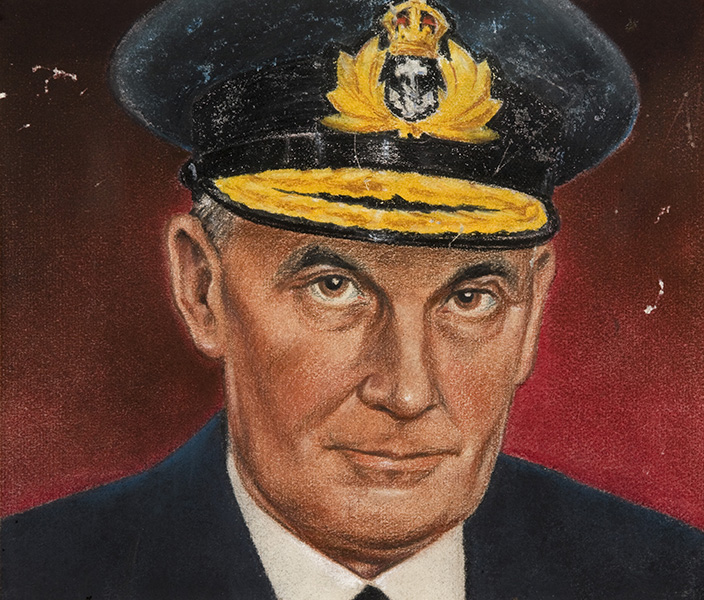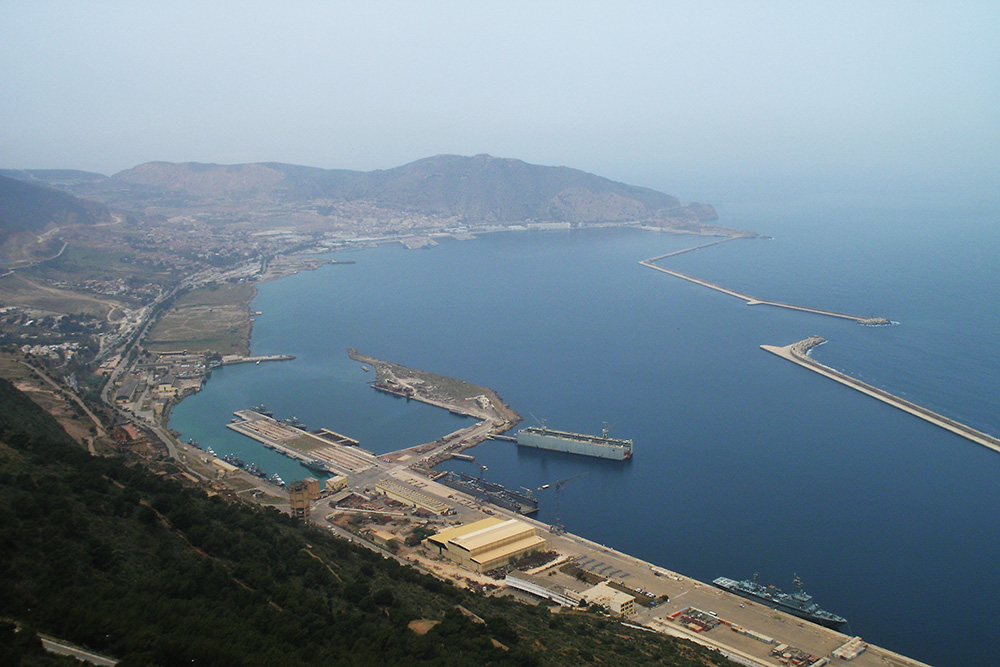Somerville, James Fownes
- Date of birth:
- July 17th, 1882 (Weybridge/Surrey, United Kingdom)
- Date of death:
- March 19th, 1949 (St. Cuthbert Out/Somerset, United Kingdom)
- Buried on:
- St. Michael Churchyard
- Nationality:
- British
Biography
James Somerville joined the Royal Navy in 1897. He became Lieutenant in 1904, having firstly qualified as a Torpedo officer and then, later specialising in wireless telegraphy. For his radio services during the Dardanelles campaign he was awarded the DSO. In the interwar period he moved up the ranks, served in the Admiralty as Director of the Signal Department, served on the staff of the Imperial Defence College and was given command of the Mediterranean destroyer flotilla.
In April 1938 Somerville was invalided home and was diagnosed as suffering from tuberculosis. However, on the outbreak of the Second World War he was recalled to duty and for the next year worked on developing naval radar. On june 8th, 1939 he was made KCB.
In May 1940 Somerville served under Admiral Bertram Ramsay at Dunkirk. This was followed by becoming naval commander of Force H based at Gibraltar. This included the carrier Ark Royal and the battlecruiser Hood.
After Petain signed the armistice on 22nd June 1940 Winston Churchill gave Somerville the task of attacking the French Navy at Mers-el-Kébir which Somerville was reluctant to do.
On 9th February 1941 Somerville organized the bombardment of Genoa and played an important role in the sinking of Bismarck on 26th May 1941.
In March 1942 Sommerville was given command of the Eastern Fleet. He was based at Ceylon until the Japanese advance forced him to move to Kilindini, Kenya.
Sommerville lost command of the Eastern Fleet in August 1944 and two months later was placed in charge of the British Naval Delegation in Washington.
After the war James Somerville retired to Wells in Somerset. In 1946 he became Lord Lieutenant.
Promotions:
1897: Naval Cadet
Jun 15th, 1898: Midshipman
December 15th, 1901: Sub-Lieutenant
March 15th, 1904: Lieutenant
March 15th, 1912: Lieutenant-Comander
December 31st, 1915: Commander
December 31st, 1921: Captain
October 12th, 1933: Rear-Admiral
September 11th, 1937: Vice-Admiral
April 6th, 1942: Admiral (retd.)
April 6th, 1942: Restored to the active list
May 8th, 1945: Admiral of the Fleet
Do you have more information about this person? Inform us!
- Period:
- First World War (1914-1918)
- Rank:
- Commander
- Awarded on:
- March 14th, 1916
- Period:
- First World War (1914-1918)
- Rank:
- Commander
- Awarded on:
- March 14th, 1916
- Period:
- Second World War (1939-1945)
- Rank:
- Vice-Admiral
- Unit:
- Retired
- Awarded on:
- August 16th, 1940
from the beaches at Dunkirk
- Period:
- Second World War (1939-1945)
- Rank:
- Vice-Admiral
- Awarded on:
- October 21st, 1941
- Period:
- Second World War (1939-1945)
- Rank:
- Admiral
- Awarded on:
- August 22nd, 1944
- Period:
- Second World War (1939-1945)
- Rank:
- Admiral
- Awarded on:
- August 7th, 1945
- Period:
- Second World War (1939-1945)
- Rank:
- Admiral of the Fleet
- Awarded on:
- December 14th, 1945
The presentation was made by the President at the White House in a joint ceremony honoring British members of the Combined Chiefs of Staff.
- Period:
- Second World War (1939-1945)
- Rank:
- Admiral of the Fleet
- Awarded on:
- January 1st, 1946
- Period:
- Second World War (1939-1945)
- Rank:
- Admiral of the Fleet
- Awarded on:
- December 23rd, 1946
- Period:
- First World War (1914-1918)
- Period:
- First World War (1914-1918)
- Period:
- First World War (1914-1918)
Sources
- Photo 1: The National Archives (United Kingdom) (CC Attribution 3.0)
- - https://www.thegazette.co.uk/London/issue/29507/supplement/2872
- https://www.thegazette.co.uk/London/issue/29507/supplement/2869
- Second Supplement to The London Gazette Issue 34925 published on the 16 August 1940
- Fourth Supplement to The London Gazette Issue 35317 published on the 17 September 1946
- Fourth Supplement to The London Gazette Issue 36666 published on the 18 August 1944
- Third Supplement to The London Gazette Issue 37211 published on the 3 August 1945
- Second Supplement to The London Gazette Issue 37387 published on the 11 December 1945
- Supplement to The London Gazette Issue 37407 published on the 28 December 1945
- Royal Navy Flag Officers 1904-1945
- Royal Naval Museum
- H.M.S. Hood - Association-Battle Cruiser Hood
- Spartacus Educational
- Military History Encyclopedia on the Web
- Citation Accompanying the Legion of Merit Awarded to Fleet Admiral Sir James F. Somerville. | The American Presidency Project














